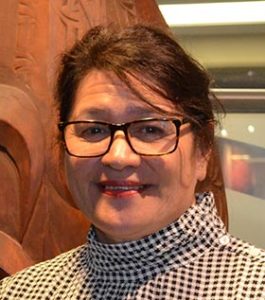
Our advice is simple. Invest in Māori public health to keep whānau well. Invest in Māori health providers and Māori nurses and kaimahi to support Māori who need to navigate the health system. Invest in ensuring Māori whānau have the prerequisites of health – food, shelter, peace, education, adequate income and a stable eco-system. This would go some way to addressing the Crown’s responsibilities under Te Tiriti o Waitangi and historic under-investment in Māori health.
The Budget must address the long-standing wage disparities for nurses and kaimahi hauora working within Māori and iwi/hapū providers. Māori nurses earn about 25 per cent less than their district health board counterparts. Despite rhetoric, numerous reports and modeling from the Ministry of Health (MOH) they have failed to address this structural discrimination against Māori nurses. Inaction from a government committed to address health inequities on this issue needs to be remedied.

Māori nurses often have multiple competencies being proficient in clinical practice but also possessing cultural expertise, mātauranga Māori and lived experience that allows them to engage effectively with whānau.
The Māori health workforce need to be central to any long-term strategy to improve Māori health and requires dedicated development and resourcing. Māori nurses often have multiple competencies being proficient in clinical practice but also possessing cultural expertise, mātauranga Māori and lived experience that allows them to engage effectively with whānau. This relational approach is critical when working with Māori communities with complex needs and aspirations in a time of economic hardship. There is comfort and ease in engaging with a health practitioner who deeply knows your culture.
Māori health workforce data shows only seven per cent (3510)1 of practising nurses currently identified as Māori. We need to urgently invest in growing the Māori nursing and unregulated kaimahi workforce and build better Māori health workforce surveillance infrastructure so recruitment and retention can be closely monitored. We need to urgently implement changes to health commissioning practices to eliminate pay inequities. Specifically, the underfunding of Māori health needs to stop and Māori providers need to be funded at a level adequate to cover the expense of kaupapa Māori modes of delivering quality health services.
There is comfort and ease in engaging with a health practitioner who deeply knows your culture.
Māori nurses have been raising this issue for many years but have seen no substantive result. Nurses have met with ministers and associate ministers of health, director-generals and taken this case to the United Nations multiple times. Kotahitanga – a united front – is required by the health sector to finally get this over the line. Māori nurses and kaimahi need economic and employment security now.
 Failure to address ethnic pay inequities and also, critically, gender pay inequities will continue to fuel a migration of nurses from Aotearoa as the global shortage of nurses and health-care workers worsens. However, despite the incentives of working overseas, it is clear gender pay gaps and more specifically ethnic pay inequities remain a global issue. Let’s sort ethnic and gender pay inequities within the health sector here and watch nurses come back home.
Failure to address ethnic pay inequities and also, critically, gender pay inequities will continue to fuel a migration of nurses from Aotearoa as the global shortage of nurses and health-care workers worsens. However, despite the incentives of working overseas, it is clear gender pay gaps and more specifically ethnic pay inequities remain a global issue. Let’s sort ethnic and gender pay inequities within the health sector here and watch nurses come back home.
References
- Nursing Council of New Zealand. (2015). The New Zealand Nursing Workforce: A profile of Nurse Practitioners, Registered Nurses and Enrolled Nurses, 2014-15.



